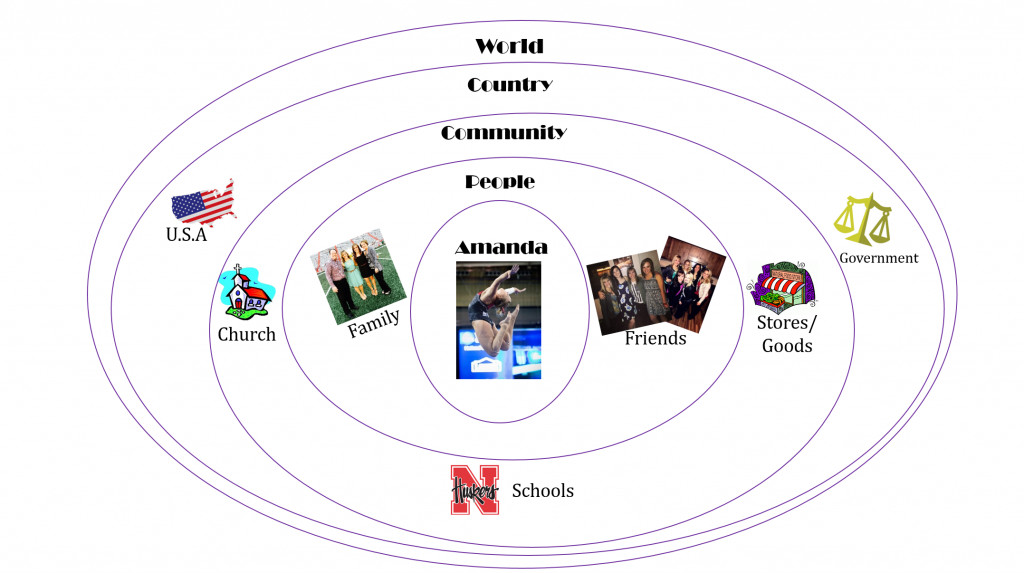It needs to be better recognised that during sibling foster care, maintaining brother-sister relationships matters for each child. Keeping siblings in care together is not always possible, but studies show the importance of maintaining these relationships.
Adapting to life in foster care is not easy for children. They have to adjust to the new environments, caretakers, and schedules. They face limited contact with their biological families and may need to work to keep their sibling connection intact. Fear of losing siblings can lead to feelings of insecurity, depression, loneliness and anxiety. They may not openly express their feelings, so establishing trust and communication with foster parents and the family unit as early as possible is vital in a foster care setting.
Sibling Foster Care – Family System Theory
Family Systems Theory, also known as Bowen Theory (1999) describes patterns and relationships that are created within a family system. Foster siblings that are involved in experiencing intense emotional traumas will have different needs and expectations of their caregivers.
The theory explains the triangle of relationships among families. When children experience trauma, siblings may experience anxiety and trust issues with adults outside of their bond. Also, if they came from dysfunctional relationships in foster care, it impacts their behaviour in a new family unit. Children replicate triangular patterns of Bowen’s theory (1985) in sibling relationships. These may lead to less positive and more harmful impacts that may ultimately affect the role of sibling bonds in the family unit and foster care.

Impacts Of Keeping Siblings Together
The current literature states that mental and emotional wellbeing linked to the positive implications of sibling’s relationships is the most critical benefit to foster siblings. According to Hegar & Rosenthal, 2011, children were reported to feel closer and more comfortable when living with their siblings at their foster parent’s home. Being close to a sibling improves a sense of belonging. Siblings living in different foster care units were reported to have more unstable lives.

Moreover, children that were kept with their siblings had a more positive and long-lasting relationship compared to those who were separated. Thus, placing siblings together positively impacts their relationship with each other by acting as emotional support after times of trauma and abuse.
Biological siblings who are in touch or raised together have higher self-esteem, social support, stronger relationships, and are more successful professionally as adults. Along with noted behavioral benefits, studies prove the profoundly positive impact of keeping foster kids together on academic performances along with overall behavioral and social dealing of routine issues.
Impacts Of Separating Siblings
As mentioned above, there appear to be many behavioral and psychological benefits and issues associated with separating foster siblings. Children entering foster care due to abuse and behavioral issues may display fewer behavioral problems compared to those who are separated from their siblings.
When children are placed in foster care systems, initial bonding with their new home and feel family is invaluable. In some cases, a strong sibling bond may actually hinder the process of adaptation. In these situations, a child may like to interact more with the sibling instead of interacting with the foster family.

Unhealthy relationship patterns may also carry over into care. An adoptive family may be unable to protect a child from their sibling, and these are cases where separate placement may be in the best interest of both children.
“It is more likely to be tough to find the perfect family and accommodate siblings together every time,” Rosella Thomas (Foster Parent of 3 children); Management Services, Crowd Writer, said.
Creating a stable environment for a child, even if it means placing them in separate homes, can lead to lasting benefits. Placing them as a group with accommodating and equipped family should be the first choice, though.
Although there are multiple studies to claim that adolescent siblings act as emotional and moral support to each other while, younger siblings are unable to support each other as they need to get stable under guidance themselves. These siblings may not have a secure attachment with each other.
Attempts To Improve Mental And Emotional Support In Sibling Foster Care
It is important that siblings can maintain their relationships when placed in foster care. Despite individual circumstances and characteristics, the amount of access each child has with their siblings plays a significant role in adjusting to the separation associated with foster care.
Being attached to a foster family along with a sibling is extremely important to develop and improve their individual mental health and overall emotional support. There is no measure to check for the impact of these relationships. However, a positive approach towards patience and stability can lead to better success in an entirely new environment.

Author Bio
Stella Lincoln is a qualified child psychologist and therapist. She has worked with a number of NGO’s and specialized in foster care writing. Currently, she is working as a Psychological Counselor and Educational Guide at Academist Help.
The post The Importance of Sibling Relationships in Foster Care appeared first on A Family For Every Child.
Read more: afamilyforeverychild.org


